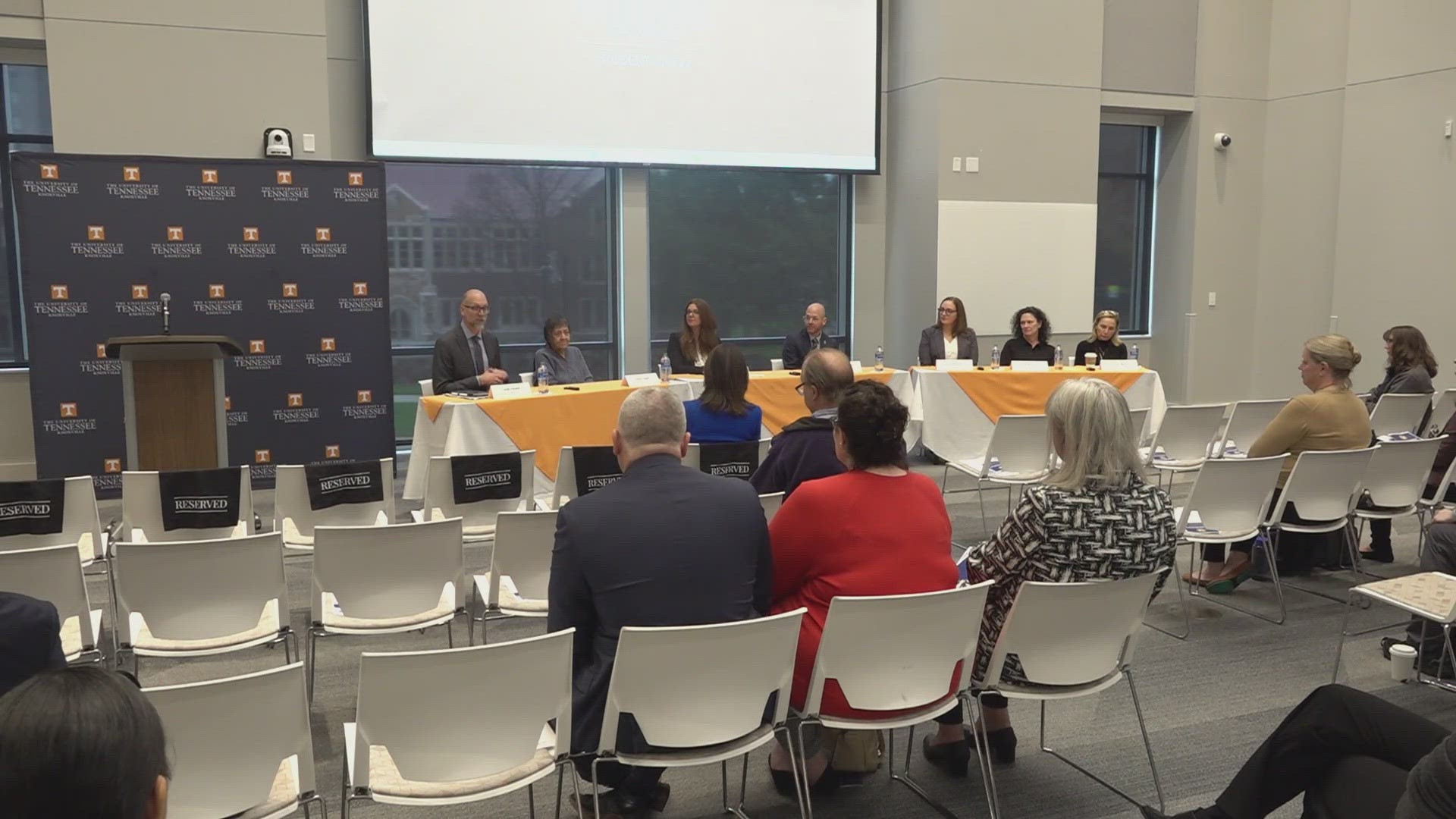KNOXVILLE, Tenn. — The University of Tennessee announced the Body Farm is getting more than half a million dollars in federal grants to fund two new research projects aimed at helping forensic investigators and law enforcement across the world.
UT announced the Forensic Anthropology Center, better known as the Body Farm, received two grants on Dec. 4 totaling more than $580,000 from the U.S. Department of Justice's research and development agency -- The National Institute of Justice.
The first grant for more than $351,000 will fund research to help law enforcement locate clandestine graves, which are hidden burial sites that contain human remains -- particularly burial sites created secretly and illegally to hide a body or multiple bodies. The goal of the research is to test ground-penetrating radar, electromagnetic conductivity and magnetometry to figure out which methods are the most accurate in given circumstances.
The second grant is for more than $229,000 and will be used to study microbes and relic DNA that can persist in the soil where bodies are buried. UT said microbes can be useful for determining the time of death and potentially linking a suspect or crime scene, but the potential exists for false readings or misunderstandings within the data due to relic DNA that should not have been associated with the burial. UT said it is not fully understood yet how relic DNA affects forensic investigations, so it wants to put in the research to better understand the process so it can make recommendations to forensic agencies and develop best practices.
“The University of Tennessee, Knoxville, is a beacon for the field of forensic science research,” said NIJ Director Nancy La Vigne. “Since 2007, NIJ has awarded 26 forensic science research grants to the university, totaling over $6.9 million. I am pleased to announce that NIJ has made two new research awards to the university that will develop essential knowledge that can inform the identification of decedents — information that will ultimately guide investigations, help solve cold cases, support prosecutions, and bring justice to victims and their families.”
UT said researchers are also working on a third $660,000 project with connections to the NIJ and Bode Technology that seeks to improve genotyping practices when working with skeletal remains.
“There are well-established, validated, practices for SNP Genotyping from recently deceased, fully fleshed human remains. This project seeks to validate these procedures to achieve similar results from skeletonized remains,” said Assistant Professor Amy Mundorff, whose research specializes in human identification from skeletonized remains.

